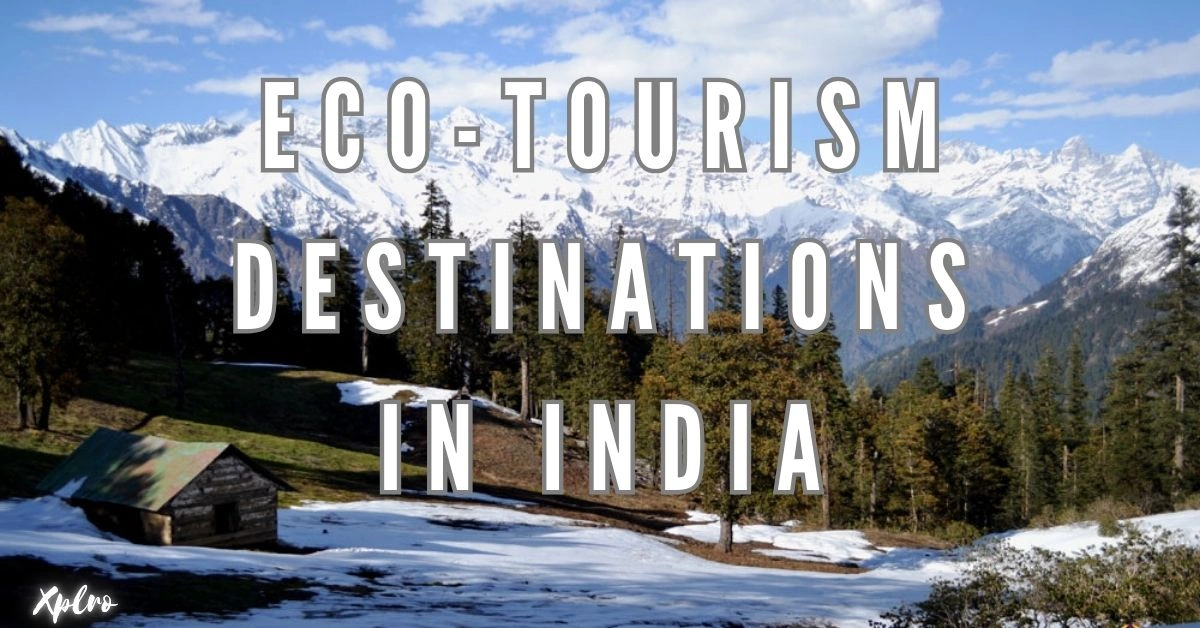 Image Source: Xpiro
Image Source: Xpiro
As the world marks World Environment Day 2025, the call for sustainable travel has never been louder. With ecosystems under threat and climate extremes on the rise, India is stepping up as a leader in eco-tourism, offering nature lovers a chance to explore breathtaking destinations while supporting conservation and community initiatives. Here are eight of India’s top eco-tourism spots, perfect for travelers seeking to connect with nature responsibly this Environment Day.
Key Eco-Tourism Destinations in India
1. Sikkim: India’s First Organic State
-
Entire state practices organic farming, reducing chemical use and supporting biodiversity.
-
Home to Khangchendzonga National Park, a UNESCO World Heritage Site.
-
Bans on plastic bottles and promotion of bamboo alternatives encourage low-impact travel.
-
Community-based tourism and clean energy projects are widely supported.
2. Majuli, Assam: The World’s Largest River Island
-
Strict ban on single-use plastics.
-
Community-driven tourism and cultural preservation are central.
-
Wetland ecosystem supports unique biodiversity and traditional lifestyles.
3. Puducherry: Coastal Sustainability
-
Promotes cycling, clean beaches, and cultural diversity.
-
Focus on eco-friendly accommodations and waste management.
-
Encourages exploration of local heritage with minimal environmental impact.
4. Daringbadi, Odisha: The Green Hill Station
-
Known for lush landscapes and emphasis on sustainable tourism.
-
Encourages eco-conscious travel through local conservation efforts.
5. Coorg, Karnataka: The Green Heart of the Western Ghats
-
Integrates sustainable practices in tourism, including organic farming and eco-friendly resorts.
-
Rich in biodiversity, coffee plantations, and forested hills.
-
Promotes low-impact trekking and nature-based experiences.
6. Khonoma, Nagaland: India’s First Green Village
-
Transitioned from hunting to conservation, now a model for community-led sustainability.
-
Focuses on wildlife protection and traditional ecological knowledge.
7. Thenmala, Kerala: India’s First Planned Eco-Tourism Center
-
Offers activities like trekking, wildlife tours, and river clean-ups.
-
Emphasizes responsible tourism and environmental education.
8. Tirthan Valley, Himachal Pradesh: Pristine Himalayan Escape
-
Located near the Great Himalayan National Park, a UNESCO site.
-
Eco-friendly homestays and active local conservation programs.
-
Ideal for trekking, nature walks, and learning about sustainable living.
Why Eco-Tourism Matters in 2025
-
The tourism industry is undergoing a green transformation, with hotels, airlines, and tour operators adopting sustainable practices to protect the very environments travelers seek.
-
Over 74% of global tourists now factor sustainability into travel decisions, a number that rises to 87% among those under 35.
-
Eco-tourism not only preserves natural habitats but also supports local economies and cultural heritage.
How to Travel Responsibly
-
Choose eco-certified accommodations and tour operators.
-
Participate in conservation activities like clean-up drives, wildlife monitoring, or organic farm visits.
-
Minimize plastic use, respect local customs, and support community-run businesses.
-
Consider low-carbon travel options, such as buses or trains, and offset your carbon footprint where possible.
Conclusion
World Environment Day 2025 is more than just a date—it's a movement toward regeneration and responsible travel. By choosing these eco-tourism destinations, travelers can help ensure that India’s natural wonders remain vibrant for generations to come.
Sources: Travel and Tour World, Times of India Travel, RedBus Blog, The Mooknayak
Advertisement
STORIES YOU MAY LIKE
 Image Source: India Today
Image Source: India Today
 Image Source: Business Upturn
Image Source: Business Upturn
Advertisement





